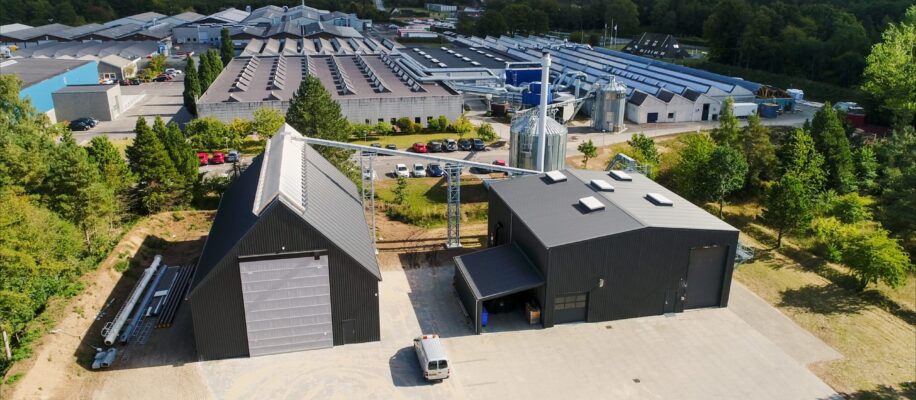Cross-sector collaboration turns residual wood products into district heating

In the town of Gelsted, the utility cooperative Gelsted Fjernvarme a.m.b.a. provides district heating to more than 420 supply units and aims to increase the number of supply units in the coming years.
Based in the Municipality of Middelfart on the island of Funen, the utility has a close collaboration with the neighbouring furniture company Carl Hansen & Søn, which turns its FSC-certified hardwood residues into renewable fuel briquettes with a high-density factor for the production of heat. To accommodate for the biomass provided all year round, Gelsted Fjernvarmebuilt a transport facility and a cold storage hall for the wood chips in 2023. The biomass from Carl Hansen & Søn contributes annually to approximately 10,000 MWh and it saves 350 lorry hauls in and out of Gelsted with supplies of wood chips and waste wood for the production of district heating. Overall, it has reduced the town’s carbon emissions by 40 per cent.
“In 2018, we initiated the collaboration with Carl Hansen & Søn and started switching from natural gas to biomass using a new heating plant that can burn wood chips and wood waste. With the loan from KommuneKredit and the build-out of storage facilities for wood chips, we are preparing for the future conversions of natural gas-heated areas. Our current estimate is that we will be able to produce around 21,000 MWh in 2025 and our goal is to phase out fossil fuels so that zero per cent of the heat is produced on natural gas.”
Torben Hjorth
Operations manager for Gelsted Fjernvarme
Loan amount and purpose:
- DKK 6.77 million disbursed green loan from KommuneKredit in 2023 to Gelsted Fjernvarme a.m.b.a. financing the total estimated project sum for the transport facility and the cold storage hall for wood chips made for district heating. The loan has been approved by KommuneKredit’s Green Bond Committee and is in accordance with KommuneKredit’s Green Bond Framework loan category: Energy.
Expected environmental impact:
- Flexible collective heat supply based on renewable energy.
- Displacement of fossil fuels with associated carbon emission savings.
- Improvement of air quality.


